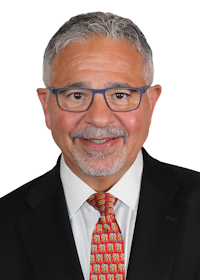Could anyone share some information about the best perio-prosthodontics programs?
Last edited:
Agreed.I think a prosth program that does a good amount of surgery probably prepares you the best for the job market and the needs of our profession.
I do think this tuition is absurd and so glad I chose to do an OMS residency and not a residency where you primarily pay (ortho, perio).
What type of income does a periodontist think they'll be making to comfortably pay this back?

 www.koiscenter.com
www.koiscenter.com
I'd imagine anyone who goes through a 5 year dual specialty residency will come out as a master.I know a Perio-Prosth guy and he is GOOD. His wife is a dentist too, so after her GPR she supported the family while he finished residency. Nicest guy you’ll ever meet.
A graduate must be competent in implant placement according to the standards set by CODA. This is the same standard required of periodontics programs. If you do some research you'll realize that some prosthodontics programs place more implants on average than most periodontics programs and do a considerable amount of surgery including sinus lifts, bone grafts etc. OMS were the first to place implants, so not sure this question would apply to them. Nowadays, most implants out there are placed by GP dentists.What does at the same level as periodontics programs mean? And where does OMS stand in this level? Just curious.
From speaking to some of the prosthodontists who were involved with the institution of the CODA requirement, the competency requirement is meant to be that. I do agree that there are some more traditional prosth programs out there that have more recently added implant training due to the requirement, but it is likely migrating towards the direction where all programs will have significant implant training. I think the situation you're describing is more a function of traditional prosth programs trying to incorporate implant training because they must.I am a resident in a CODA accredited Pros program that is not surgically heavy. We just had our CODA accreditation last academic year (Fall 2019). Competency in implant placement does not mean it is at the same level as periodontics programs and "competency" is defined by each Pros program. Because our pros program is a classical pros program that is heavy in restorative rather than surgical treatment, many of our residents place <10 implants in their time here. These are placed in well healed ridges without the need for augmentation or site preparation.
I have also heard that there are some prosthodontic programs that place more implants than the perio programs at the same university but certainly not all of them.
Our pros program has a very healthy collaborative relationship with both Perio and OMS. We do a lot of complex multidisciplinary treatment that is strengthened by our relationship with a surgical specialty. We also have a Perio-Pros program that is 5 years that makes you dual board eligible.
I understand.From speaking to some of the prosthodontists who were involved with the institution of the CODA requirement, the competency requirement is meant to be that. I do agree that there are some more traditional prosth programs out there that have more recently added implant training due to the requirement, but it is likely migrating towards the direction where all programs will have significant implant training. I think the situation you're describing is more a function of traditional prosth programs trying to incorporate implant training because they must.
